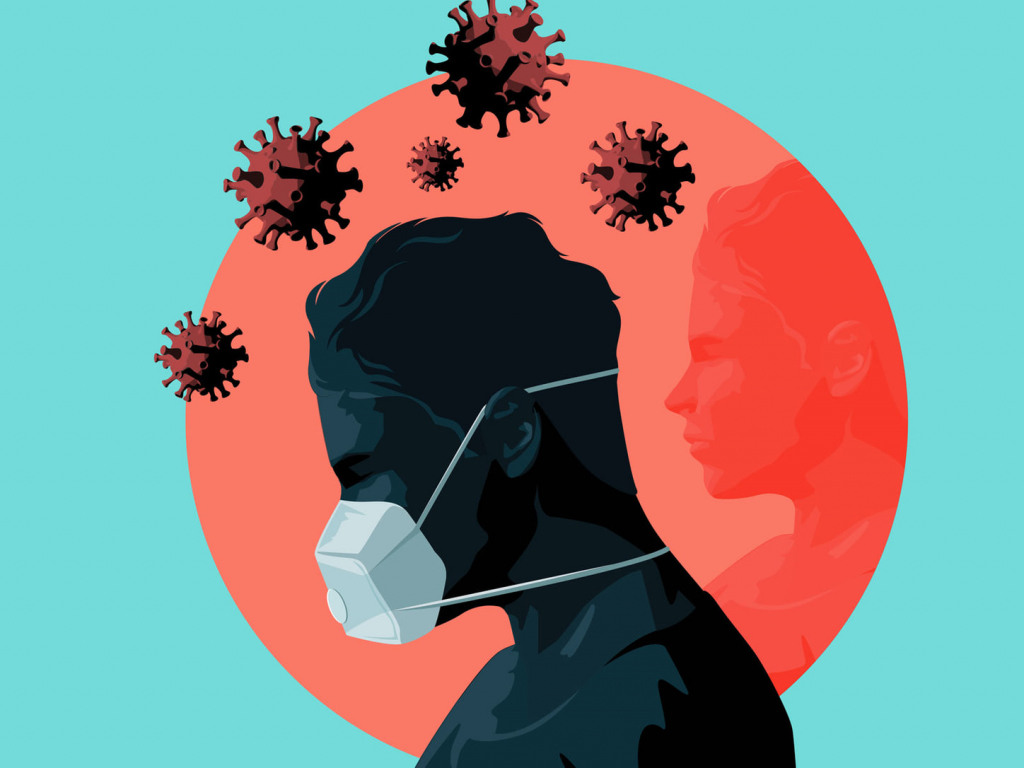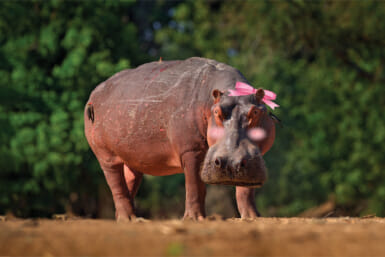Described by United Nations Secretary-General António Guterres as “the biggest threat to humanity since World War II,” the Covid-19 pandemic has had far-reaching consequences. Beyond the spread of the disease, plenty of us are naturally concerned about the psychological and physiological strain the virus is having as we self-isolate. Tokyo Weekender speaks with the experts, asking them to weigh in on the psychology behind what we’re experiencing and how we can better protect our mental health.
Although Japan’s state of emergency, which wasn’t particularly strict in the first place, has now been officially lifted, many of us are still working from home and avoiding social gatherings. While staying inside for extended periods may be preferable to some, for others it has led to elevated rates of stress and increasing feelings of existential loneliness and anxiety.
There’s also the fear of the unknown and the overwhelming flow of information as we try to make sense of this new territory. It’s natural that we will be more drawn to reports of rising death tolls and infection rates rather than reports about recoveries. This “negativity bias” in human cognition and behavior is well-documented and the media uses it to expose us to information that’s negatively valenced.
“Hearing about mortality rates or unemployment figures transfers a signal to our brains about danger,” says TELL lifeline director Vickie Skorji. “The feeling is that you need to know more even though you can’t control what’s happening. This sends your stress response into overdrive and that can be addictive. You’ve also got people furiously debating online about appropriate action governments should be taking. After the Tohoku earthquake, it felt like everybody became a professor in nuclear physics, now everyone’s a virologist. We’re looking for certainties when the fact is we don’t know what will happen and that’s fueling anxiety.”
The concept of intermittent reinforcement is one explanation of why we spend so long on our devices checking to see if anything’s changed. After coming across something significant we’ll continue to check back during the day as our curiosity has been aroused. Skorji suggests limiting the number of times we look at social media and news sites to around once or twice daily as “it’s vital to have downtime away from the disaster.” She feels it would be more rewarding to learn a new skill or try something we’d previously been putting off. Exercise, while keeping a safe distance from others, can also be effective in helping to burn off that excess adrenaline and cortisol in our bodies.
“We’re looking for certainties when the fact is we don’t know what will happen and that’s fueling anxiety.”
Of course, it’s not easy for everyone to make productive use of their time, especially those with existing mental health conditions who may find something simple like getting out of bed in the morning a challenge. For those in need of support, there are organizations that can help such as TELL Japan, whose Lifeline service offers mental health counseling to English-speaking residents in Japan. There are also therapists serving the foreign community here, though some would argue not enough to meet demands.
“With the small number of foreign mental health therapists in Japan, we’re stretched to our limits,” says therapist and psychology professor Daniel Velasco. “Since the outbreak, my client load has quadrupled, particularly students and teachers. They’re coping the best they can, but even before the virus many found Japan to be too isolating. Now, the future looks more uncertain than ever. They might be living alone or feeling unsupported in the current environment, so the first thing I do is give them a chance to speak about themselves. Some talk for an hour non-stop and feel much better; others chat for a few minutes before wanting to hear from someone else.”
Velasco is a member of International Mental Health Professionals Japan (IMHPJ), a self-governing multidisciplinary association founded in 1997. The organization was created by a group of clinicians following the Great Hanshin Earthquake to provide people suffering from mental distress with an easy-to-use database of English and other language-speaking professional therapists along with their credentials.
“Reaching out to someone, whether that be a friend, family member or a qualified therapist, can make a big difference right now,” says IMHPJ president and Nagoya-based therapist Jillian Mickleborough-Sugiyama. “This pandemic is a traumatic event for many because as humans we’re hardwired to connect. Early on in the crisis there was lots of nervous energy, but that can only last so long before being replaced by exhaustion which can lead to either psychological or physical immobilization.”
“Reaching out to someone can make a big difference right now.”
“I believe there’s an opportunity now to slow down and learn more about ourselves,” continues Mickleborough-Sugiyama. “We all have different ‘parts’ or feelings inside us that want to be heard, but if we haven’t been taught self-leadership or how to self-regulate our autonomic nervous systems, they can be suppressed. I use a model called Internal Family Systems (IFS) therapy which attempts to tap into qualities accessible to all of us, such as curiosity and confidence. By engaging in conversation with these parts, we can provide them with compassion, gratitude and unburdening.” Though therapists usually customize an integrated approach for their clients, most will have preferred methods. Velasco specializes in Existential Psychology and Morita Therapy, aimed at promoting well-being, body-mind connectedness and improving daily functioning. Registered counselor Maarten Mulholland’s go-to modality tends to be Acceptance and Commitment Therapy (ACT), which encourages people to embrace their feelings rather than feel guilty about them. “The idea of ACT that I find particularly useful in these times is the emphasis it places on accepting only those things you have command over,” says Mulholland. “We can get lost in our own mind thinking about what if or how long something’s going to last so I use an anchoring technique to try to bring patients back to the present. There are many potential ‘anchors’ you could use such as observing breaths or bodily sensations. Becoming more aware of these things may ease some of the incessant ruminations in the mind. It doesn’t mean your anxieties will disappear, but it does help in giving you more control over your body.”
Mullholland and fellow Tokyo-based therapist Michael Nevans also highlight the importance of maintaining a regular routine to avoid slipping into bad habits such as over or under eating. “What I encourage my clients to do is segment their days,” says Nevans. “For instance, it’s nice to have a lie-in, but you don’t want to roll out of bed and into work mentally unprepared. Use a portion of the time you would have spent commuting to go for a walk. We need some kind of transition to avoid blending our worlds too much.”
“Just as post-traumatic stress disorder (PTSD) can arise from a disaster, so can post-traumatic growth (PTG).”
“For couples and families, I believe it’s essential to set boundaries,” continues Nevans. “‘These are my business hours and therefore I don’t want to engage at these times. I know this conversation’s important to you, but we wouldn’t be having it if I were in the office.’ You need to communicate effectively and be clear about expectations. Don’t allow yourself to be distracted and then blame your family for your failings. The terrain has changed and we need to work around that.” This “changing terrain” hasn’t been negative for everyone. In amongst all the pain, destruction and discrimination, there have been positives as well. Around the globe we’ve seen growing appreciation for essential workers and acts of kindness have been flourishing. In many ways, despite the physical distancing, this pandemic has paradoxically brought people closer together and as a result it could, in the long-term, make some of us stronger. Just as post-traumatic stress disorder (PTSD) can arise from a disaster, so can post-traumatic growth (PTG).
“It’s like when a fire destroys part of the forest allowing for new growth,” says Nevans. “We’ve destroyed parts of our routines and that feels discombobulating. There’s been a big shift, but with that comes an opportunity for self-development.”
If you are in need of support, visit telljp.com and www.imhpj.org









